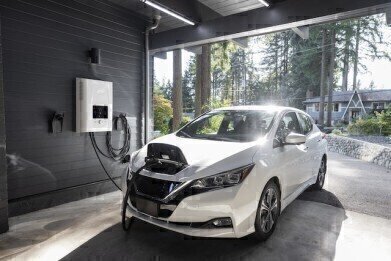Measurement and Testing
Fuel Cells vs Batteries - What's the Difference?
Sep 10 2022
From solar power to electric vehicles, alternative energy markets are booming as the world scrambles to reduce carbon emissions and address the climate change crisis. Of all the alternative energy technologies available, fuel cells and batteries are two of the most promising. Both have made a big mark on the alternative energy landscape. So, what’s the difference between the two?
Read on as we compare fuel cells vs batteries and cover everything you need to know about the two technologies.
Creating energy
The biggest difference between batteries and fuel cells is how energy is created. Batteries store chemical energy and transform it into electrical energy when connected to a device. Energy is created when electrons flow through the electrolyte from the anode (the negative electrode) to the cathode (the positive electrode). This generates an electrochemical reaction and creates energy to power the device.
Instead of storing chemical energy, fuel cells use feedstocks such as hydrogen to generate power. The mechanics are similar to batteries, with each cell containing a positive electrode (cathode) and negative electrode (anode) separated by an electrolyte. Air is directed to the cathode while a feedstock like hydrogen is fed to the anode. Here, a catalyst is used to split hydrogen molecules into electrons and protons. They then migrate to the cathode using different paths. Electrons pass through an external circuit to generate electricity. Protons pass through the electrolyte to the cathode, where they mix with oxygen to generate heat and H2O, the by-products of hydrogen fuel cells.
Lifespan
Unlike standard batteries that have a limited life, fuel cells continue to generate energy, so long as a feedstock is available. Of course, like all technologies they deteriorate over time. Most automotive hydrogen fuel cells systems are designed to last the lifetime of the car, usually around 250,000 to 350,000 kilometres.
While some batteries are single-use and can’t be reused once power has been depleted, the latest generation of lithium ion batteries can be recharged thousands of times. This is known as cycle life. At the Argonne National Laboratory run by the US Department of Energy (DOE), researchers have developed a nickel-manganese-cobalt oxide (NMC) lithium ion battery cathode that’s safer and more powerful than ever. It also boasts an exceptional cycle, thanks to the use of boundary-free single crystals to prevent the formation of cracks in the cathode. Over the coming years, testing will play a critical role in driving technological advances and accelerating the adoption of lithium ion-powered EVs.
By-products
When hydrogen is used to power fuel cells and generate electricity, the only by-products are water and heat. Compared to combustion engines, fuel cells have zero emissions and release no CO2 into the atmosphere. That said, how the hydrogen is sourced can affect the environmental credentials of fuel cells. For example, fossil fuel-derived hydrogen has a significantly higher carbon footprint than “green” hydrogen generated via renewable electricity.
Batteries have no notable by-products during use. However, the manufacturing process is energy and resource intensive. Energy materials like cobalt and lithium must be mined, which contributes to the overall environmental footprint of batteries.
Want to know more about the lithium ion battery industry? Don’t miss out complete guide, ‘Lithium Ion Batteries: Types, Testing & Uses’.
Digital Edition
PIN 25.3 June/July
June 2024
Analytical Instrumentation - Recent Advances In Various Bench Scale Accelerated Oxidative Testing Methods For Fuels - Petrochemical Industry: Anton Paar Solutions Streamline Processes, Reduce H...
View all digital editions
Events
Jul 30 2024 Jakarta, Indonesia
Jul 30 2024 Jakarta, Indonesia
China Energy Summit & Exhibition
Jul 31 2024 Beijing, China
Jul 31 2024 Chengdu, China
Aug 05 2024 Moon Township, PA, USA


















